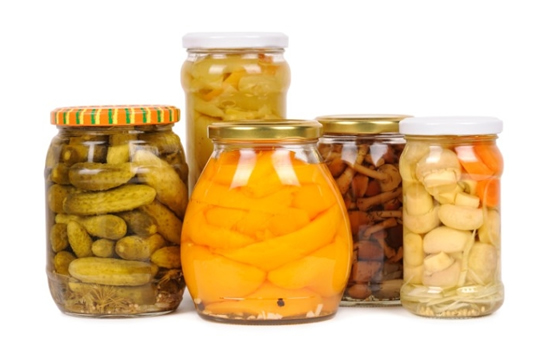Add in a varied mix of probiotics filled foods to help strengthen the immune system and improve digestion.
Yogurt
A well recognized probiotics food is handmade, live-cultured yogurt. But avoid the yogurts with artificial flavors, sweeteners, and high fructose corn syrup, so make sure to read the labels.
Miso Soup
Miso soup is a common addition to macrobiotic cooking and helps with traditional Japanese medicine, including acting as a digestive regulator. This soup is made using barley (or rice), beans, and fermented rye. Add 1 tbsp of miso to create a probiotic rich and quick soup.
Sauerkraut
Sauerkraut is made using fermented vegetables (often cabbage) and loaded with beneficial live cultures. It also has the potential to cut symptoms associated with allergies. A hearty plate of Sauerkraut can also help to up the intake of vitamins A, B, C & E.
Kefir
Kefir is a combination of fermented kefir grains and goat’s milk, which produces a product that is quite similar to yogurt. This dairy product is loaded with bifidus and lactobacilli and bacteria while also being high in antioxidants. A preferred choice is organic and available at any good health store.
Kombucha
Kombucha is a further type of fermented tea able to offer a high concentration of gut-friendly bacteria. This beneficial drink has been used as a healthy remedy for hundreds of years and helps with weight loss, enhanced well-being, and increases the energy. But, this tea isn’t the most practical choice for those with Candida (fungal infection) or similar health complaints.
Microalgae
Microalgae (ocean-based plants like blue-green algae, chorella, and spirulina) are a great addition to a breakfast smoothie, although it is not seen as food per se.
Pickles
Green pickles offer a perfect ingredient to up the intake of probiotics. Most of the pickles in the market hold a certain level of microbial value.
Tempeh
Tempeh has the ability to offer a perfect alternative for tofu or meat. This grain is probiotics-rich, fermented, and made using soy beans. Tempeh is loaded with vitamin B12 and easily added at meal time in salads (eaten crumbled), baked, or sautéed.
Kimchi
Kimchi is a sour fermented cabbage with an extremely spicy taste that forms part of Asian dishes. In addition to the high concentration of bacteria, this probiotic food is also packed with vitamins A, B1, B2 & C, iron, calcium, and beta-carotene. Kimchi is a great choice for those that like to eat the more spicy meals.
Poi
Poi is a result of mashing the taro plant (cooked) until quite dough like consistency is achieved. This type of probiotics food is able to contain more gut-friendly bacteria than yogurt. However, fresh, fermented poi is difficult to produce on a large scale in a way that is entirely safe and sanitized. So, for this reason it might be more difficult to source the store-bought products.
In summary
Probiotics offer healthful gut-friendly bacteria that are needed to keep the digestive system running smoothly. In addition to the probiotic foods, there are also a variety of probiotic supplements that can help get the proper intake of live bacterium.

I am a complete believer in taking probiotic supplements after they helped my dad with his severe gut issues after not faring well with repeated courses of antibiotics.